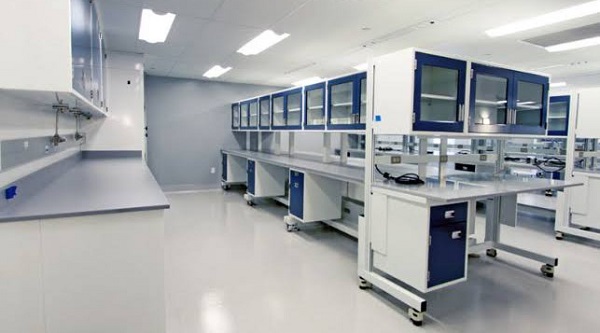
The Nigeria Centre for Disease Control and Prevention (NCDC) has commissioned a biorepository at the Central Public Health Laboratory (CPHL), a campus of the National Reference Laboratory in Lagos.
Speaking to journalists in Abuja at the weekend, the NCDC director-general, Dr. Ifedayo Adetifa said the agency is building a sustainable system for health security through strategic partnerships, in line with leading the preparedness and response to diseases of public health importance in the country.
He said that the project was supported by the United States Centres for Disease Control and Prevention (US-CDC) through its implementing partner, the Institute of Human Virology (IHV), as part of ongoing efforts to strengthen diagnostic capacity and surveillance for infectious diseases in the country.
The NCDC boss said that one of the strategic approaches to achieving the NCDC mandate was the development and maintenance of reference laboratories across the country to support the accurate and timely detection of infectious diseases.
“A key component of public health laboratory services is ensuring proper storage of human and animal biological samples such as blood and its by-products (plasma and serum), biofluids (e.g., urine, sputum, etc), genetic material (DNA and RNA) including from pathogens, and the actual pathogens, etc,” he said.
Adetifa stated that a bio-repository is an essential element for the preparedness and response to infectious disease outbreaks as it facilitates timely sharing of biological specimens and data and enables facilitates research (including public health research) and development.
“This bio-repository in CPHL will afford researchers that meet the necessary ethical requirements easy access to well-curated biological samples and data.
“The samples made available through biorepositories such as this also aid training, confirmation of proficiency, etc.
The additional sample storage capacity will contribute to increased understanding of infectious diseases through integrated disease surveillance, and research which will inform public health decision-making, and facilitate the development of diagnostics, therapeutics and vaccines,” he explained.
Adetifa said the newly commissioned biorepository in CPHL would serve as a national centralised resource for valuable, high quality and well-annotated samples.
He said it would also expand the NCDC’s capacity for biobanking and complements activities at the apex public health laboratory, NCDC’s National Reference Laboratory (NRL) in Abuja which houses the largest bio-repository in West Africa.
“Nigeria’s long-standing partnership with the United States through US-CDC and the IHVN has translated into strengthening the capacity for public health laboratory services in Nigeria, among other things.
“The quality storage of biospecimens collected for diagnostic and research purposes in both humans and animals is a critical step for facilitating research that will not only enhance our capacity for the timely detection and response to emerging and re-emerging disease outbreaks but also developing therapeutics and vaccines for the country,” he said.
Recall that the NCDC has designated the Central Public Health Laboratory (CPHL) as the Lagos Campus of the NRL to complement the activities of NRL in Abuja in the provision of high-quality laboratory services, coordinating and directing laboratory-based surveillance and providing oversight to state public health laboratories in Nigeria.
The biospecimens processed in these specialised and reference laboratories (blood, DNA and RNA) are kept in biobanks for future reference and research purposes.
The NRL, Gaduwa, Abuja houses the largest bio-repository in West Africa. With the support of the US-CDC, a subsidiary of the bio-repository has been built at CPHL to complement that of the NRL in Abuja.
This operationalisation will afford prospective researchers’ easy access to biological samples in the fulfilment of necessary ethical requirements.

